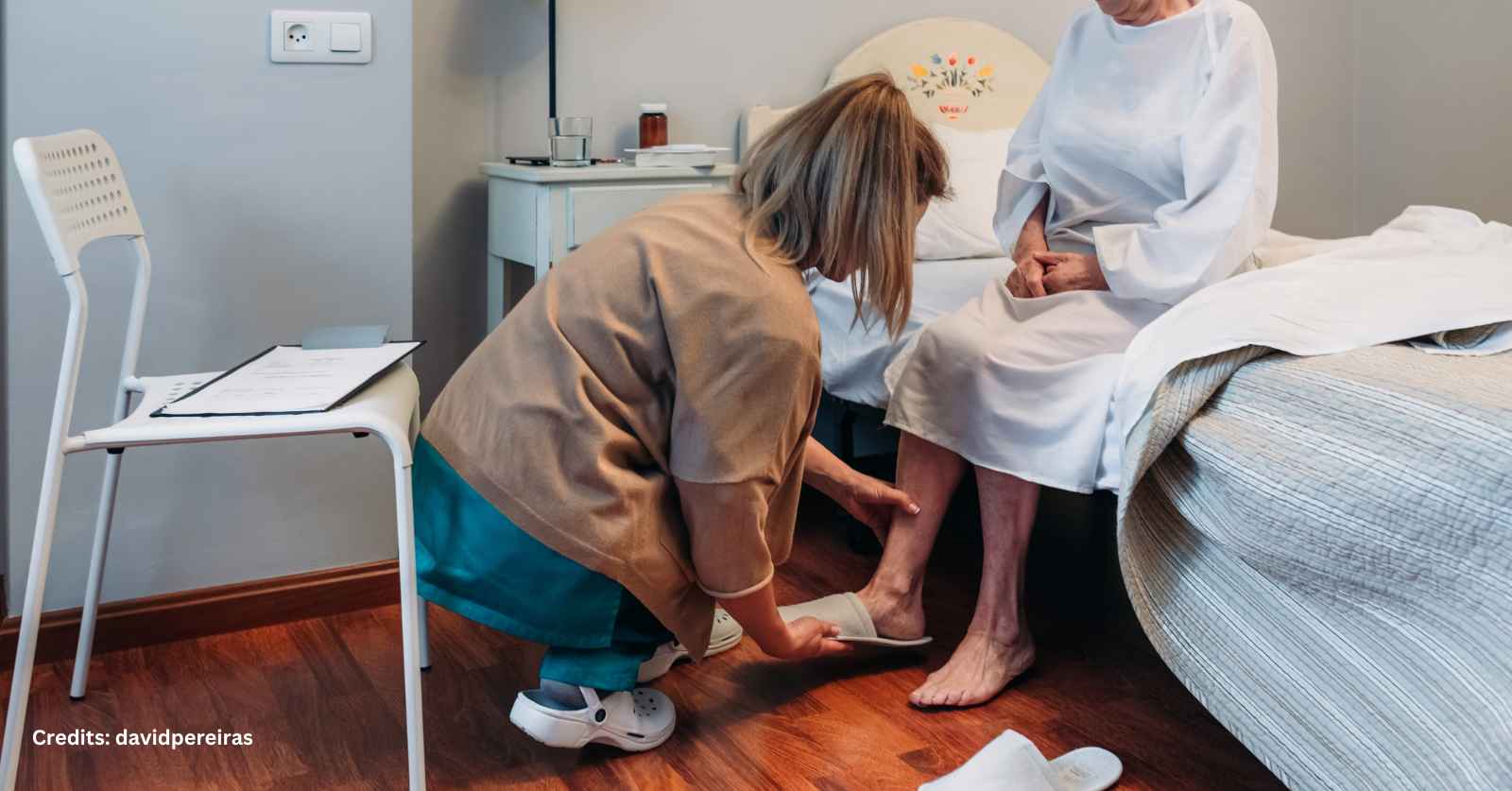Depression is like navigating through a fog—everything seems overwhelming, distant and bleak. If you’re feeling lost, know that you’re not alone.
Some tools and strategies can help clear the way, including therapy, medication and lifestyle changes. Understanding your options and taking action is the first step towards a brighter, clearer path.
Understanding Depression
Depression is more than sadness. It’s a persistent condition that affects your mood, thoughts and body.
It can lead to various emotional and physical problems, diminishing your ability to function at home and work. It can also affect your relationships with family, friends and coworkers. Recognising these effects is crucial as it sets the foundation for treatment and recovery.
Approaching Treatment for Depression
Before delving into specific treatments, it’s essential to understand that overcoming depression requires a proactive approach. Here are some of the steps involved:
- Acknowledgment: Recognising that you’re dealing with depression is the first critical step.
- Seeking Help: Consulting with a healthcare professional or therapist can provide a diagnosis and guide you toward the proper treatment.
- Education: Learning about depression and its treatments can empower you and demystify the process.
- Commitment: Treatment requires time and effort. Committing to the process and being patient with yourself is vital.
Now, let’s explore two common methods of treating depression—therapy and medication along with their role in your recovery journey, their benefits and how they can be combined with alternative treatments for a holistic depression treatment plan.
The Role of Therapy in Treating Depression
Therapy is considered the cornerstone of depression treatment. It involves speaking to a professional about your experience, identifying thought patterns and learning coping strategies.
It’s about finding a trusted partner to help you navigate the complexities of depression. You can ask friends and relatives to recommend a local therapist, or you can check online sources such as https://jacksonhousecares.com/treatment/depression/ and other mental health resources for help.
Types of Therapy for Depression
Cognitive Behavioural Therapy: This type of therapy is based on the concept that your thoughts, feelings, and behaviours are interconnected. It involves identifying negative thought patterns that affect your mood. You and your therapist work together so you can learn strategies that will transform your thoughts into more positive and realistic ones.
Interpersonal Therapy (IPT): IPT focuses on your past and present social roles and interpersonal interactions. It helps you process grief, transition smoothly through life changes, resolve conflict with loved ones, and overcome problems connecting with others. Role-playing different scenarios can improve your communication skills and allow you to build a more robust support system with your partner, family, friends, and coworkers.
Dialectical Behaviour Therapy (DBT): A type of cognitive-behavioural therapy initially developed to treat borderline personality disorder, DBT employs mindfulness, distress tolerance, and emotion regulation to manage and change intense emotions causing problems in your life. DBT also increases interpersonal effectiveness by teaching you to communicate with others assertively.
Mindfulness-Based Cognitive Therapy (MBCT): Combines cognitive therapy techniques with mindfulness strategies. Meditation and breathing exercises help increase awareness of the present moment. It’s particularly effective in preventing relapse after recovery from depression.
Psychodynamic Therapy: This mode of therapy is based on the principle that past experiences and unresolved conflicts influence current behaviours and emotions. It explores the unconscious mind to understand repressed emotions and experiences. The goal is to gain insights into your problems and resolve them through understanding past conflicts and current symptoms.
Each type of therapy has its own approaches and benefits. The effectiveness of a treatment depends on individual preferences, the nature of the depression and your relationship with your therapist. Discussing these options with a healthcare professional who can guide you toward the most suitable type for your needs is often beneficial.
Benefits of Talk Therapy
Engaging in therapy can be a transformative experience. It goes beyond discussing your problems to learning, growing, and healing. Treatment not only helps you manage the symptoms of depression, but it can also create lasting changes in your thought patterns, behaviours and overall lifestyle.
Here’s a closer look at the myriad benefits that therapy can offer:
Safe and Supportive Environment: Therapy provides a private space to express thoughts and feelings. It also allows you to voice your frustrations, fears, and anxieties without judgement.
Improved Self-Understanding and Insight: Therapy encourages a deeper understanding of yourself and your personal goals and values. It helps you recognise patterns in your thoughts, behaviours and relationships that may contribute to your depression.
Coping Skills and Strategies: Therapy teaches practical techniques to solve your problems so you can positively cope with stress and other emotional challenges.
Behavioural Changes and Growth: Engaging in various activities and behaviours promotes positive feelings and improves mood. At the same time, therapy encourages you to make significant lifestyle changes that can support your mental health, such as exercise, diet, and sleep habits.
Improved Relationships: Various therapy methods teach you how to communicate effectively to express yourself effectively, deal with conflicts in healthier ways, and improve your relationships.
Reduced Relapse Risk: Therapy provides tools to manage symptoms and prevent relapse. Even after completing therapy, the skills and strategies you learn can serve as long-term tools for mental health maintenance.
Empowerment and Resilience: Therapy empowers you to take control of your life and decisions. It develops your confidence to face life’s challenges and setbacks.
Holistic Improvement: Aside from alleviating symptoms of depression, therapy aims to improve your emotional, mental, and sometimes physical wellbeing so you can enjoy a higher quality of life.
Remember that therapy isn’t a one-way street. It’s a collaborative process between you and your therapist. Overcoming depression through talk therapy is a journey of self-discovery and empowerment that leads to a more balanced, fulfilled life.
Transitioning from Therapy to Medication
While therapy offers profound benefits in understanding and managing depression, sometimes it’s necessary to complement these strategies with medication. Antidepressants can play a critical role in balancing chemistry and providing relief from the debilitating symptoms of depression.
As we transition from exploring the multifaceted benefits of therapy, let’s delve into how medication can further support and enhance treatment outcomes, offering a more comprehensive approach to managing depression.
How Medications Help in Treating Depression
Medications are often used to balance brain chemicals involved in mood regulation. They reduce the symptoms of depression and are particularly effective when combined with therapy. Medicines for depression include antidepressants, mood stabilisers and antipsychotic drugs.
Let’s explore the different types of depression medication in greater detail, beginning with a list of some well-known antidepressants.
Antidepressants
Antidepressants work by altering the balance of certain chemicals in the brain called neurotransmitters, which are involved in regulating mood and emotional response. They often increase the availability of neurotransmitters like serotonin, norepinephrine, and dopamine, which can help improve mood, relieve anxiety, and increase energy levels.
While the exact mechanism can vary depending on the class of antidepressants, the overall goal is to help alleviate symptoms of depression and improve overall mood.
Types of Antidepressants
Selective Serotonin Reuptake Inhibitors (SSRIs): These are the most commonly prescribed class of antidepressants. It is often the first line of treatment due to its relative safety and tolerability. They increase serotonin levels in the brain, a chemical associated with mood regulation.
Serotonin and Norepinephrine Reuptake Inhibitors (SNRIs): SNRIs are similar to SSRIs but also increase the levels of norepinephrine, a brain chemical involved in mood and energy. They are often used to treat major depressive disorder, anxiety, and sometimes pain disorders.
Tricyclic Antidepressants (TCAs): One of the older classes of antidepressants, TCAs work by affecting several neurotransmitters, including serotonin and norepinephrine. They can be very effective for severe depression. However, they tend to have more side effects than SSRIs and SNRIs.
Monoamine Oxidase Inhibitors (MAOIs): another older class of antidepressants, MAOIs inhibit the monoamine oxidase. This enzyme breaks down serotonin and norepinephrine. They’re effective for certain types of depression that don’t respond to other forms of treatment. However, MAOIs require a strict diet, as they can have severe interactions with certain foods and medications.
Atypical Antidepressants: This group includes various medications that don’t fit into the other categories but are effective in treating depression. They work through different mechanisms and neurotransmitter pathways.
N-methyl-d-aspartate (NMDA) antagonists: These are newer types of antidepressants that are often recommended for persons suffering from major depressive disorder. An advantage of this type class of antidepressants is that they can show results in a shorter time.
Each type of antidepressant has its own set of benefits and potential side effects. Your choice of medication will largely depend on your specific symptoms, side effect profile, and personal and family treatment history. When using these medications, it’s essential to have an open and ongoing dialogue with your healthcare provider to find the most effective and safest option.
Mood Stabilisers and Antipsychotic Drugs
Mood stabilisers and antipsychotic drugs are sometimes used in treating depression, especially when it’s severe or accompanied by psychotic symptoms.
Mood stabilisers are primarily used to treat bipolar disorder, helping to reduce the severity of mania and depression. They’re also effective in controlling mood swings.
Antipsychotic drugs, also known as neuroleptics, are sometimes used in severe cases of depression or treatment-resistant depression, often in combination with other medications.
Both mood stabilisers and antipsychotic medications are potent drugs that can be life-changing when used appropriately. They work best in a comprehensive treatment plan that includes therapy, lifestyle changes, and support. As with all medications, individuals must work closely with their healthcare providers to find the most effective and safest regimen for their situation.
Best of Both Worlds: Combining Therapy and Medication
The combination of medication and therapy is often referred to as a multimodal treatment approach for depression. This method offers a more comprehensive strategy as it addresses both the biological and psychological aspects of depression.
Combining therapy and medication has several advantages, including:
Synergistic Effects: Medication can alleviate physical symptoms of depression, such as fatigue and sleep disturbance, making individuals more receptive to therapy. Likewise, therapy provides coping strategies and psychological support that can improve long-term resilience against depressive symptoms.
Tailored Treatment: The combination allows for more personalised care. While medication can be adjusted based on biological needs and side effects, therapy can be simultaneously tailored to address personal issues, traumas, or thought patterns that contribute to depression.
Comprehensive Symptom Management: Depression often involves a complex interplay of symptoms. Medication can rapidly address biological symptoms, while therapy can take more time to help with behavioural and emotional changes. Together, they cover a broader spectrum of symptoms, from insomnia and low energy to feelings of guilt and worthlessness.
Continuous Support: Therapy provides a consistent support system, offering a space to discuss challenges and progress. It can also help in managing the psychological side effects that might arise from taking medication.
Relapse Prevention: Long-term use of both therapies can help prevent relapse. While medication can maintain neurotransmitter levels, therapy equips you with strategies to handle future stressors or depressive episodes, reducing the overall risk of relapse.
Holistic Health Improvement: This combined approach promotes overall health and wellbeing. Medication can improve daily functioning and quality of life, while therapy enhances self-esteem, communication, and interpersonal relationships.
Empowerment: When actively engaged, individuals often feel more empowered and in control of their recovery. This can increase treatment adherence and overall satisfaction with the treatment process.
In sum, combining therapy and medication in the treatment of depression can provide a more robust, individualised and practical approach. By addressing both the chemical and emotional aspects of depression, individuals often experience a more complete and sustained recovery. It’s essential to work closely with healthcare professionals to determine the most suitable combination of treatments based on your needs and circumstances.
Enhancing Treatment with Lifestyle Changes
While therapy and medication are foundational in treating depression, incorporating positive lifestyle changes can significantly enhance treatment outcomes. These changes support the mind and body, creating a healthier environment for recovery and wellbeing.
Let’s explore how integrating simple yet impactful lifestyle modifications can bolster your journey to overcoming depression.
Embrace Routine and Physical Activity: Establishing A daily routine and staying active are powerful tools against depression. They provide structure and can boost your mood and self-esteem.
Nutrition Matters: A balanced diet supports brain health, influencing mood and energy levels. Aim for a diet rich in fruits, lean protein, and whole grains.
Reach Out and Volunteer: Staying connected with loved ones and engaging in community activities can provide a sense of belonging and purpose, which is crucial in combating depression.
Exploring Alternative Treatments: Incorporating mindfulness practices can enhance focus and reduce stress. Natural supplements such as Omega-3s can also help improve your mood and health.
A Journey Towards Wellbeing
Treating depression is a multifaceted approach combining therapy, medication, lifestyle adjustments, and support. Each small step you take is a move towards a clearer, happier future. With the proper support and strategies, you can navigate out of the fog of depression and into a brighter, healthier life.
Seek help, stay patient, and keep moving forward. Your wellbeing is worth every step.




















Upcoming Events
6th Annual Aged Care Week
June 25, 2025
Subscribe
We send emails,
but we do not spam
Join our mailing list to be on the front lines of healthcare , get exclusive content, and promos.